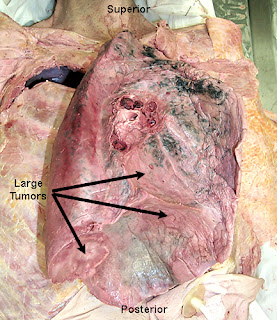Lung Cancer Disease
Cancer: It is the disease caused by an uncontrolled division of abnormal cells in a part of the body .There are several types of cancer in the body. such as breast cancer, lungs cancer, blood cancer, stomach cancer, liver cancer, bone cancers.
Lung Cancer Symptoms
When lung cancer first develops, there may be no symptoms at all. But as the cancer grows, it can cause changes that people should watch for. Common signs and symptoms of lung cancer include:a cough that doesn't go away and gets worse over time, constant chest pain,coughing up blood,shortness of breath, wheezing, or hoarseness,repeated problems with pneumonia or bronchitis,swelling of the neck and face,loss of appetite or weight loss,fatigue.
 |
| Add caption |
These symptoms may be caused by lung cancer or by other conditions. It is important to check with a doctor if you have symptoms because only a doctor can make a diagnosis. Don't wait to feel pain. Early cancer usually doesn't cause pain.


No comments:
Post a Comment